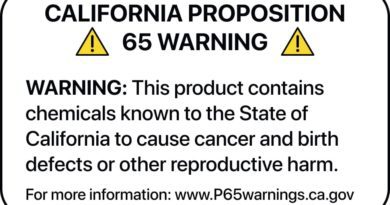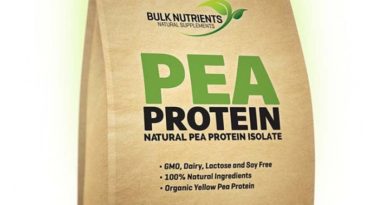Supplement Science No Longer a Selling Point for Consumers?
Is the science behind your supplements still a major selling point, or do you just assume it’s there? As a sports nutritionist with over two decades of experience, this question gets to the heart of how we make decisions about our health.
Many consumers now expect supplement science to be a given. A 2024 survey from the Council for Responsible Nutrition (CRN) shows that a staggering 75% of Americans use supplements regularly.
This raises a critical question: In a crowded market, is it safe to assume every product has solid research behind it?
This guide will explore what truly drives buying decisions today. We’ll give you the tools to see past the hype and choose supplements that are both safe and effective.
Disclaimer: This article is for informational purposes only and is not meant to treat or diagnose any condition. It is recommended that you speak with your doctor before starting any exercise program, changing your daily nutrition, or adding any supplements to your regimen.
Table of contents
Key Takeaways
- Trust, But Verify: While most consumers expect products to be science-backed, this isn’t always the case. Your health depends on looking for proof, not just trusting marketing claims.
- Look for Third-Party Seals: The most reliable way to verify a product’s quality is to look for certifications from independent organizations like NSF, Informed-Sport, and USP.
- Beware of Proprietary Blends: Transparent labels that list every ingredient and its exact dosage are a sign of a trustworthy brand. Proprietary blends can hide ineffective or underdosed ingredients.
- Marketing vs. Efficacy: Emotional connection and influencer marketing are powerful tools, but they don’t guarantee a product works. Use them as a starting point for your research, not the final word.
Do Consumers Really Understand Supplement Science?
While supplement consumers are more informed than ever, there’s a huge gap between wanting science-backed products and knowing how to spot them. Many people still rely on label copy or website claims to make their choice, which can be misleading.
In my experience, having strong science front and center is crucial. It shows that the supplement manufacturer has done its due diligence. Nobody wants to waste money on a product that doesn’t deliver results.
The biggest hurdle for consumers is often the label itself. Many brands hide their formulas behind “proprietary blends,” making it impossible to know if you’re getting an effective dose of each ingredient. This practice allows companies to “pixie dust” a formula with a tiny, ineffective amount of an expensive ingredient just to list it on the label.
A smart consumer should look for a few key things to verify a product’s quality and supplement science.
- Full Transparency: The label should list every ingredient and its exact dosage. Avoid proprietary blends that obscure this information, as they can hide under-dosed ingredients or unnecessary fillers.
- Third-Party Certifications: Look for seals from independent organizations. These verify that the product contains what the label says and is free of contaminants or banned substances. A 2022 study from the Clean Label Project found that many top-selling protein powders contained heavy metals and BPA. This makes third-party testing essential.
| Certification | What It Guarantees |
|---|---|
| NSF Certified for Sport | Verifies label claims and ensures the product is free from over 270 substances banned by major athletic organizations. |
| Informed-Sport | Tests every single batch of a product for banned substances before it is released to the market, offering the highest level of assurance for competitive athletes. |
| USP Verified | Confirms the product contains the ingredients listed on the label, in the declared potency and amounts, and is made according to FDA Good Manufacturing Practices. |
Has Emotional Marketing Overtaken Scientific Proof?
The reality is that an emotional connection often comes first. Many people are drawn to a brand’s story, its packaging, or endorsements from athletes and influencers. They often assume the product is already backed by science.
The influence is undeniable. A recent study revealed that over 41% of consumers admitted an influencer’s recommendation impacted their decision to purchase a health supplement. Brands have mastered this, using social media to build a powerful sense of community and aspiration around their products. Look at the explosive growth of **Prime Hydration**, a brand built almost entirely on the personalities of its founders, Logan Paul and KSI, rather than on detailed scientific breakdowns.
A 2025 survey from Chemi Nutra found that 83% of consumers want supplements that will help them “feel like themselves again.” This highlights a powerful shift where consumers are seeking an emotional outcome, not just a physical one.
While this emotional connection is a powerful entry point, it can be risky if not followed by research. The U.S. Food and Drug Administration (FDA) does not approve supplements for safety or effectiveness before they are sold. The Federal Trade Commission (FTC) requires influencers to clearly disclose paid partnerships, so be wary of endorsements that don’t include tags like #ad or #sponsored.
This is why, after you connect with a brand’s message, your next step should always be to validate its supplement science claims. The best brands successfully do both.
- Emotional Connection First: Brands like **Gaia Herbs** and **MegaFood** build strong followings by focusing on their commitment to sustainability, regenerative agriculture, and transparency, which resonates with consumers’ values.
- Science as Validation: Once a consumer is engaged, the brand must provide clear, accessible scientific proof. This includes transparent labeling and third-party testing, which builds trust and justifies the purchase.
Supplement science is far from “noise.” While emotional marketing opens the door, solid scientific evidence is what should convince you to walk through it. Look for brands that connect with you emotionally and then back it up with data. Your health and your wallet will thank you for it.

Supplement Science FAQs
What is the difference between “clinically studied” and “clinically proven”?
“Clinically studied” means an ingredient has been researched, but it doesn’t guarantee a specific outcome. “Clinically proven” is a much stronger marketing term suggesting that the ingredient has been proven effective in scientific trials and supplement science. Always look for the studies themselves to see the context.
Are more expensive supplements always better?
Not necessarily. Price can be influenced by marketing budgets, packaging, and brand reputation. A moderately priced supplement with transparent labeling and third-party certifications from a reputable company like Thorne or NOW Foods is often a better choice than a hyped, expensive product with no verifiable data.
How can I research supplement ingredients myself?
Use independent, evidence-based resources. Websites like Examine.com provide detailed analysis of studies on a huge range of supplement ingredients. The National Institutes of Health (NIH) Office of Dietary Supplements also offers fact sheets for consumers and professionals.


*Disclosure: This article may contain affiliate links or ads, which means we earn a small commission at no extra cost to you if you make a purchase through these links. These commissions help support the operation and maintenance of our website, allowing us to continue producing free valuable content. Your support is genuinely appreciated, whether you choose to use our links or not. Thank you for being a part of our community and enjoying our content.
PLEASE CONSIDER SHARING THIS ON YOUR SOCIAL MEDIA TO HELP OTHERS LEARN MORE ABOUT THIS TOPIC.





